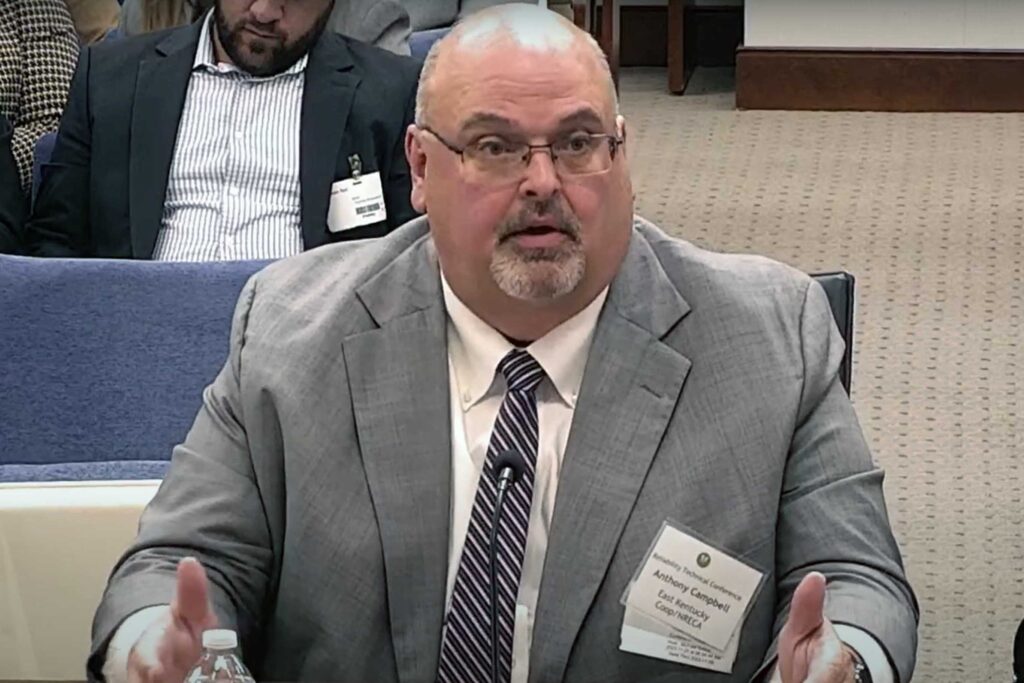
Electric cooperatives’ well-publicized concerns about grid reliability under an Environmental Protection Agency plan to rapidly eliminate carbon dioxide emissions from the power sector were front and center at a recent conference at the Federal Energy Regulatory Commission, the independent agency charged with protecting the bulk power system.
As proposed, EPA’s rule would result in the “disorderly retirement and elimination of baseload generation at alarming rates that will leave the electricity grid with a significant deficit of dispatchable generation as replacement generation will not be available,” said Tony Campbell, president and CEO of East Kentucky Power Cooperative, at the FERC technical conference on reliability on Nov. 9.
EPA is slated to finalize a rule in spring 2024 to require zero-emission generation by 2035.
To comply, power providers likely would curtail output from coal plants to below 20% annual capacity by 2032, then completely retire them by 2035, Campbell, who testified on behalf of NRECA, told the commissioners. New natural gas unit capacity would likely be limited to below 20% starting in 2032.
Campbell called on FERC to use its authority to have the North American Electric Reliability Corp., the entity charged with establishing reliability standards for the grid, assess the impact of the EPA proposal and weigh in during the federal interagency review process.
“Policymakers should look to NERC for guidance before they pass rules that will impact the reliability of the grid,” he said. “The question for this conference is whether or not reliability can be salvaged.”
Campbell told the commission that the EPA’s proposed solutions—carbon capture and sequestration and using zero-emission hydrogen as fuel—are unproven technology that “will not be available within the compliance timeframe, even putting aside the costs to implement them.”
Plus, infrastructure development, siting and permitting required to deploy both CCS and clean hydrogen are years beyond the EPA’s deadlines, he said.
“The proposed rule exceeds EPA’s authority under the Clean Air Act, hinges on widespread adoption of technologies that have not been adequately demonstrated to work at commercial scale while achieving EPA’s requirements, and contains unrealistic and unachievable time frames,” said Campbell.
“EKPC and NRECA’s overall position is that EPA’s proposal is unlawful and unworkable. The only way that the proposed rule will not have a detrimental effect on electric reliability is for EPA to withdraw it.”
Cathy Cash is a staff writer for NRECA.